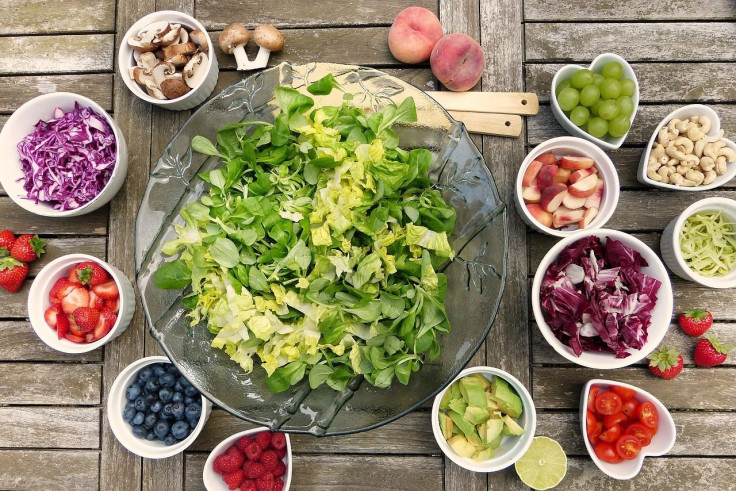Wash Fruit, Vegetables With Soap Amid COVID-19? Viral Video Advises, But It's A Bad Idea

Washing fruits and vegetables with soap and water even during the COVID-19 pandemic is not the right thing to do, food scientists warned. A doctor in a recent viral video suggested that pre-soaking produce in soapy water and then washing it with soap for 20 seconds can help amid the ongoing crisis.
"We've known for 60 years that there are toxicity issues about consuming household dish soaps," Benjamin Chapman, a professor and food safety specialist at North Carolina State University, told Live Science debunking this claim made in the video. "Drinking dish soap or eating it can lead to nausea, can lead to [an] upset stomach. It's not a compound that our stomach is really built to deal with."
Chapman said that people should wash produce as they normally would.
The video in question was posted to YouTube on March 24 by Dr. Jeffrey VanWingen, who works in private practice as a family doctor in Grand Rapids, Michigan, Since being uploaded, it has been viewed nearly 17 million times.
"I felt an urgency to get the word out to people that despite the stay-at-home order [in Michigan], we need to use caution when we go out," VanWingen told Live Science. "That's really the most important piece of the message: If you don't have to go out, don't. But if you must, to get food, do so with caution."
In the video, VanWingen makes the claim that has not been scientifically proven. However, he also advised about other ways to keep a person safe and away from the new coronavirus. He said that people should spend less time in the grocery store and wipe down shopping carts with disinfectant. He urged those below the age of 50 to go shopping instead of sending an elderly person, as they might have a higher risk for severe illness from COVID-19, according to the Centers for Prevention and Disease Control (CDC).
While these are suggestions that health experts have already brought to light, VanWingen also gives suggestions that are less scientifically sound. For instance, he advises people to keep new groceries in a garage or porch for at least three days, if possible. He suggests that containers bought at the store be disinfected or discarded.
A recent study in the New England Journal of Medicine suggested that the virus could stay on cardboard for 24 hours and plastic and stainless steel for 72 hours. However, Chapman said: "We don't have any evidence that food or food packaging are transmission vehicles for coronavirus."
Chapman also clarified as to why washing fruits and vegetables with soap isn't a good idea. According to him, doing this could lead to health problems, such as mild gastrointestinal irritation with nausea, vomiting, diarrhea and abdominal pain. This could happen as produce is porous, so it can absorb soap.
"Consumers should not wash fruits and vegetables with detergent or soap," according to the U.S. Department of Agriculture (USDA). "These products are not approved or labeled by the U.S. Food and Drug Administration (FDA) for use on foods. You could ingest residues from soap or detergent absorbed on the produce."
However, the food scientists did agree with VanWingen about the risks people are taking while spending too much time at grocery stores.
"Your biggest risk from groceries and coronavirus is the time that you spend in the grocery store around people who either have the coronavirus and have symptoms or asymptomatic people who are in the grocery store," Schaffner said. "That's the big risk right there."
Published by Medicaldaily.com



























